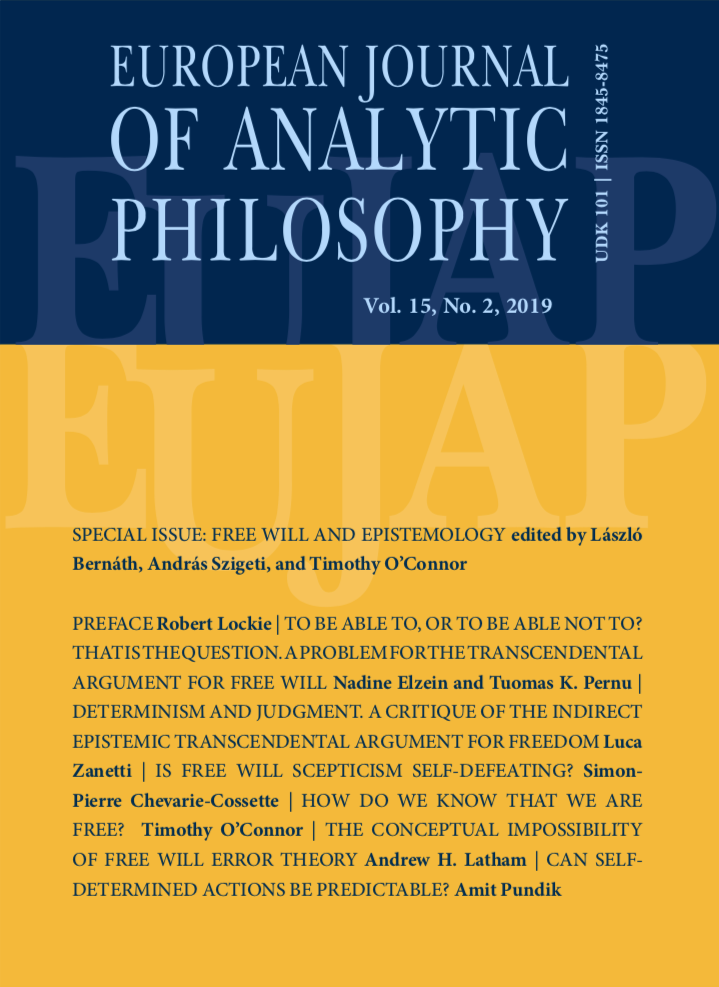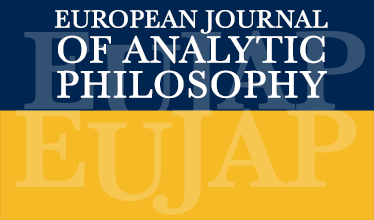PUBLICATION ETHICS
EuJAP subscribes to the publication principles and ethical guidelines of the Committee on Publication Ethics (COPE).
The core structure of EuJAP is composed of an Editor-in-Chief, Editorial Board and Advisory Board.
In EuJAP, the EDITOR-IN-CHIEF is appointed by the Dean of the Faculty of Humanities and Social Sciences in Rijeka (University of Rijeka) based on a proposal by the faculty members of the Philosophy Department.
The Editor-in-Chief (EiC) is fully responsible for all the content published in the journal. EiC is free to appoint additional assistant editors, associate editors, managing editors, and administrative assistants to help them run the journal in its multifarious activities. In addition, EiC nominates members of the editorial and advisory board from a pool of established and recognized experts to help them actively shape the journal’s publication policy, represent the scope of the journal, and guarantee and maintain the quality of its publications.
EuJAP is fully committed to a double-blind peer reviewing policy, in order to ensure a high-quality and unbiased selection process.
In what follows, we describe the roles and responsibilities of editors, editorial and advisory boards, reviewers, and authors in the context of the European Journal of Analytic Philosophy.
EDITOR’S RESPONSIBILITIES INCLUDE THE FOLLOWING:
- Acknowledging and confirming the receipt of submitted manuscripts
- Taking measures to ensure the efficiency and timeliness of the review process
- Ensuring a fair, unbiased review process including the guarantee of confidentiality to authors, reviewers, and to any other person in the publishing process, as appropriate
- Exempting himself/herself from processing manuscripts they themselves might be in conflict of interest with, either with regards to the authors or the institutions affiliated with the manuscripts
- Abstaining from disclosing information about the content and the authors of manuscripts to third parties that are not involved in the publishing process
- Making the final decision on whether to publish or reject submitted manuscripts based on the contribution to the paper in terms of their originality, relevance, clarity, language, outreach or some other factors they deem as relevant and which are aligned with good academic practice
- Promoting objectivity and academic integrity in the publishing process
- Making necessary clarifications, corrections, withdrawals of articles and issuing apologies should such situations arise
- Informing the participants in the review process of the ethical guidelines and taking steps to ensure that they are followed
EDITORIAL BOARD
Their responsibilities include the following:
- Acting as ambassadors of the journal by promoting and supporting its activity
- Engaging in the review process if necessary
- Encouraging other prominent authors to send their work
- Helping the editor adjudicate difficult cases, such as allegations of plagiarism and disagreements between reviewers about the quality of a manuscript
- Actively shaping editorial policies and generally helping editors to implement these policies
ADVISORY BOARD
Their role is to:
- Serve as representatives of the topics covered by the journal
- Occasionally review and/or helping to find external reviewers
- Remain at disposal and provide advice to the editor concerning their areas of expertise
REVIEWERS
Their responsibilities include the following:
- Completing the review process in timely and efficient manner by respecting a one-month review deadline, unless otherwise specified
- Assisting editors in selecting articles for publishing and productively contributing to editor’s decisions in the publishing process
- Assisting authors by providing suggestions for improving their work
- Notifying the editor about any changes or issues in the review process including the inability to meet the deadlines previously established with the editor
- Accepting to review only those manuscripts they are qualified to review
- Treating manuscripts as confidential documents
- Not disclosing information contained in manuscripts to third parties outside the publishing process
- Recognizing and warning the editor of any suspicion of plagiarism
- Informing the editor about overlaps between the manuscript they are reviewing with other manuscripts or already published papers
- Using information, findings, ideas from the manuscripts in their own work only with the explicit, written approval of the author
- Declining the review of manuscripts with which they might be in conflict of interest
- Nurturing and promoting objectivity and academic integrity of the review process
AUTHORS
Their responsibilities include the following:
- Resisting submission of the same manuscript to more than one journal simultaneously since it is seen as a serious breach of academic ethics and could result in blacklisting
- Ensuring originality and integrity in their work
- Submitting work that is devoid of plagiarism (i.e. work that does not claim other people’s work as their own in form of submitting papers of other authors, taking parts of text or ideas of other authors without proper citation, self-plagiarism, etc.)
- Using proper rules of citing sources and references
- Notifying the editor if they notice a significant oversight in the work they have already submitted, or the work that has already been accepted, and work together with the editor to rectify the issue
- Indicating possible conflicts of interests regarding their connection to the institution, the journal, members of the editorial board, or any other factor that might compromise the objectivity of the publishing process
- Reserving authorship and co-authorship status only to those who have significantly contributed to the manuscript in the form of its content, structure and ideas presented
- Accepting the terms of open access publishing in accordance with the Attribution-ShareAlike 4.0 International (CC BY-SA 4.0). Authors retain the copyright over their own work.
For further EuJAP specific instructions for authors and our malpractice statement, please see Author Guidelines
NORMS FOR PUBLISHING WITH AI:
The Journal does not exclude the use of AI generated text. However, all authors (including reviewers and editors) take full responsibility for its factual accuracy and the proper acknowledgement of sources. In the acknowledgement section of your manuscript or the title page (depending on the submission/publication stage) or in other kind of reports you must identify the AI that was used, and the extent of the contribution. For instance, ChatGPT (version or the date when the AI was used).
Depending on the level of the AI contribution, the acknowledgement section should contain more specific information about the level of contribution of the AI.
The contribution level of the AI can be defined as follows:
- negligible – means the AI only made minor changes to the manuscript’s style or grammar;
- modest – means the AI made important suggestions but was not the primary driver of the research or had an essential role in writing the manuscript;
- substantial – means the AI made several crucial suggestions that shaped the research and the manuscript could not have been completed without it.
If the contribution of the AI is “negligible”, there is no requirement to mention its usage during the submission or review and publication processes. However, for any other level of contribution, it is expected that authors will report the extent of AI usage. In cases where the AI contribution is “substantial”, authors, reviewers, and editors should provide a comprehensive description of the AI usage and its contributions in a narrative format.


